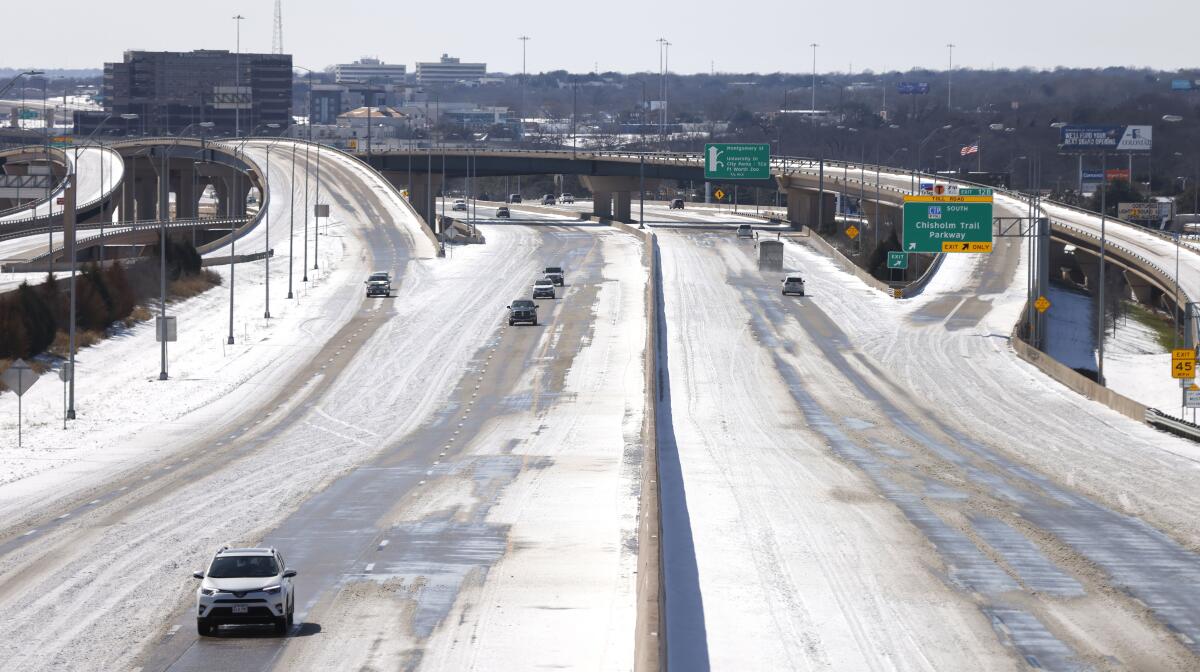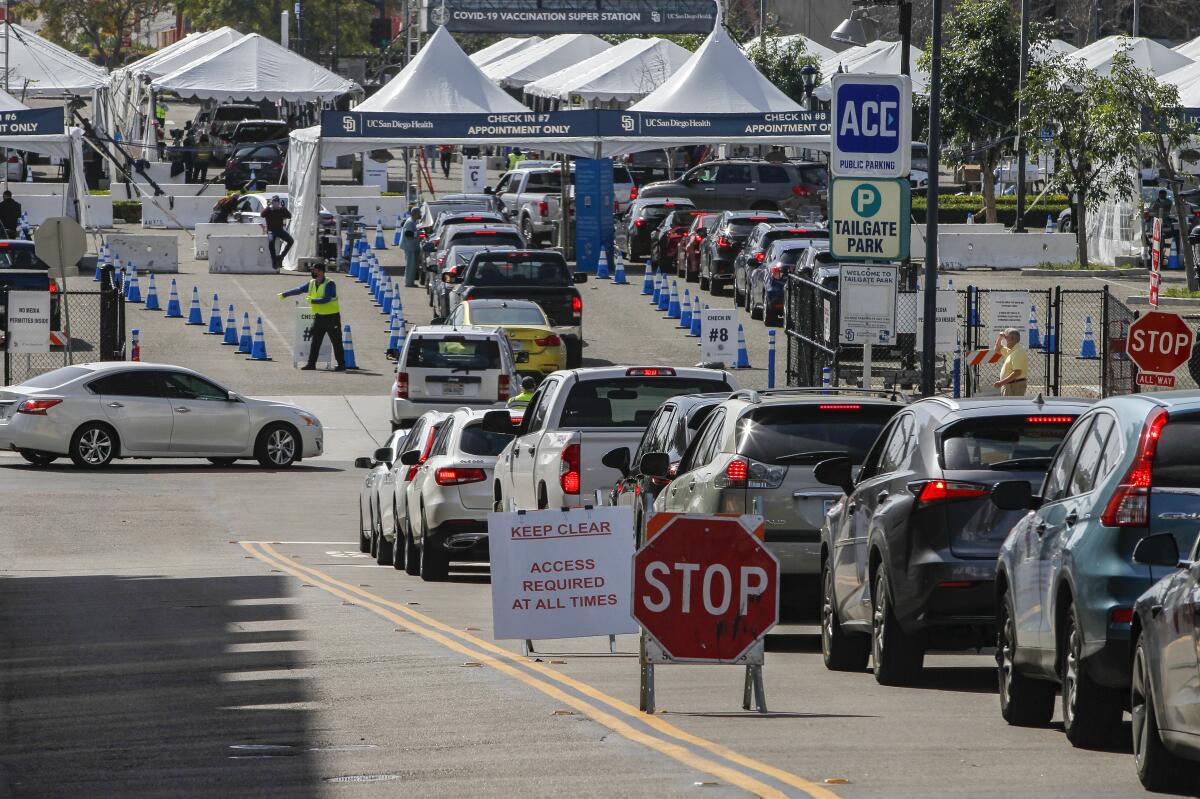Winter storms freeze San Diego region’s vaccine supply

San Diego County predicts a “pause” at vaccination clinics until current situation thaws
- Share via
SAN DIEGO — San Diego County officials said Wednesday that nationwide winter storms will force a temporary shutdown of some vaccination clinics.
County Supervisor Nathan Fletcher said during a weekly COVID-19 update that the supply lines to the places where Pfizer and Moderna make the doses that the entire nation are relying on are simply frozen at the moment. The main manufacturing facilities for the nation’s two coronavirus vaccines are in Massachusetts and Michigan.
“Both of those, along with the routes from there to here, have been impacted by the snow and the winter weather conditions we’re seeing throughout the country,” Fletcher said. “This is going to impact our ability to administer vaccines this week.”
He said the effects of the weather-related vaccine supply slowdown will be immediately noticeable to the thousands who have appointments for first or second doses.
“We expect, as early as tomorrow, to begin to have to pause some of our vaccine locations,” the supervisor said. “We also are very likely to have to reschedule appointments.”
According to the county’s COVID-19 vaccination dashboard, 135,151 of 473,763 people across the region have received two doses and were fully vaccinated as of Wednesday.
That leaves more than 330,000 people having received just a single dose and waiting for their second, which is to be administered 21 or 28 days after the first.
The county did not provide any information Wednesday on how many of that number are coming due this week or next and may need to be pushed back due to already inadequate supplies.
Officials did confirm Wednesday that the county will begin reserving some incoming doses for residents in parts of the region considered to be disadvantaged, but no information was available as to how much of the dwindling supply will be held back or what the effect is expected to be on the overall availability of supply for second and first doses.
“There will be tremendous strain on the system to fulfill second-dose appointments, which means, barring some significant change in [the] supply chain, the availability of first-dose appointments over the next week to 10 days will probably be pretty limited,” Fletcher said.
The U.S. Centers for Disease Control and Prevention stated recently that second doses can be given as far as six weeks after first doses in situations where supplies are constrained.
Dr. Wilma Wooten, the county’s public health officer, said she is not concerned that delays will push second doses out beyond six weeks.
“I think we will be fine,” she said, adding that while the CDC does recommend a second dose within six weeks of the first, those receiving a second even later still “should not be required to start the series all over again.”
Some reported long waits to access the vaccination superstation near Petco Park on Wednesday morning, the first time the location was up and vaccinating again after a hiatus due to constrained supplies. One woman said she waited more than two hours in her car trying to get her second dose. Traffic control, she said, was minimal, with many drivers cutting in front of others by entering the vehicular queue from side streets.
Fletcher said he did not know what was causing the situation, and UC San Diego officials, who are running the site, were not available to discuss the matter Wednesday afternoon.

No vaccine is 100% effective, even when two doses are administered perfectly on schedule. Evidence of that fact has now appeared in San Diego with Dr. Eric McDonald, medical director of the county’s epidemiology department, indicating that a local healthcare worker who was fully vaccinated subsequently tested positive for coronavirus infection after being exposed. McDonald said little about the situation other than indicating that confirmation of the infection came to his office 48 hours earlier.
Overall, San Diego’s coronavirus activity continues to slow, with 539 new infections listed in Wednesday’s report. Intensive care cases and overall hospital volume are also declining. An additional 57 COVID-related deaths were listed.
Sisson writes for the San Diego Union-Tribune.
More to Read
Sign up for Essential California
The most important California stories and recommendations in your inbox every morning.
You may occasionally receive promotional content from the Los Angeles Times.











